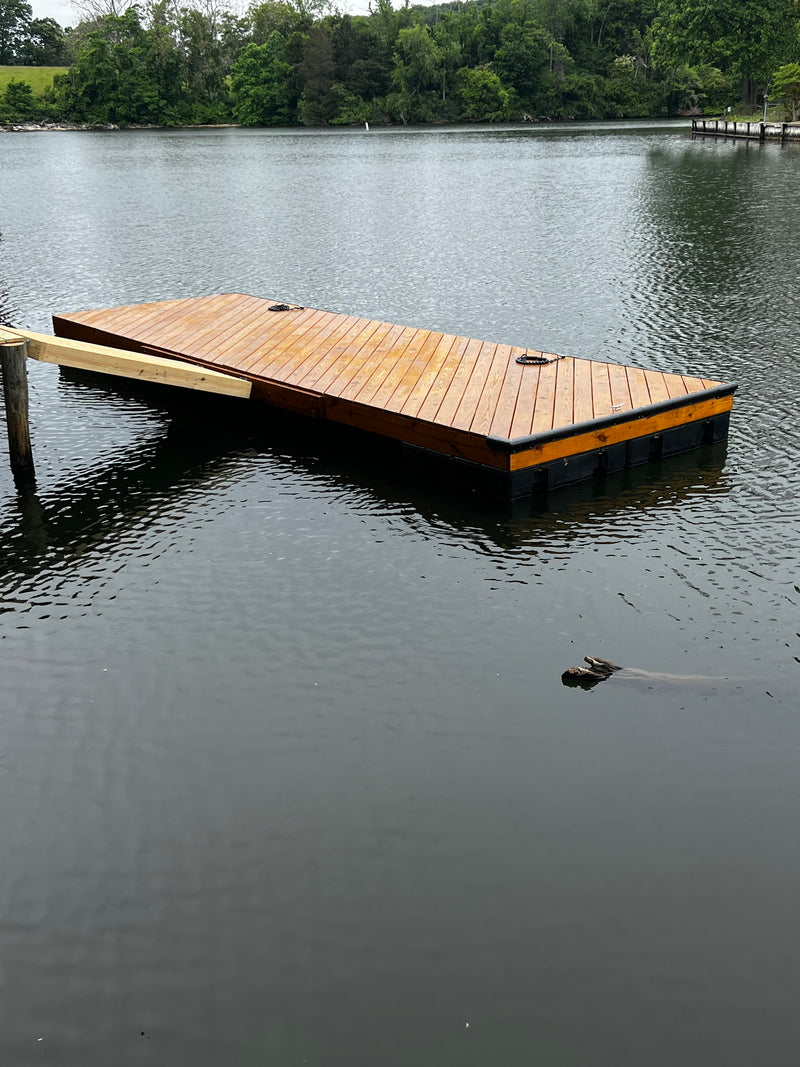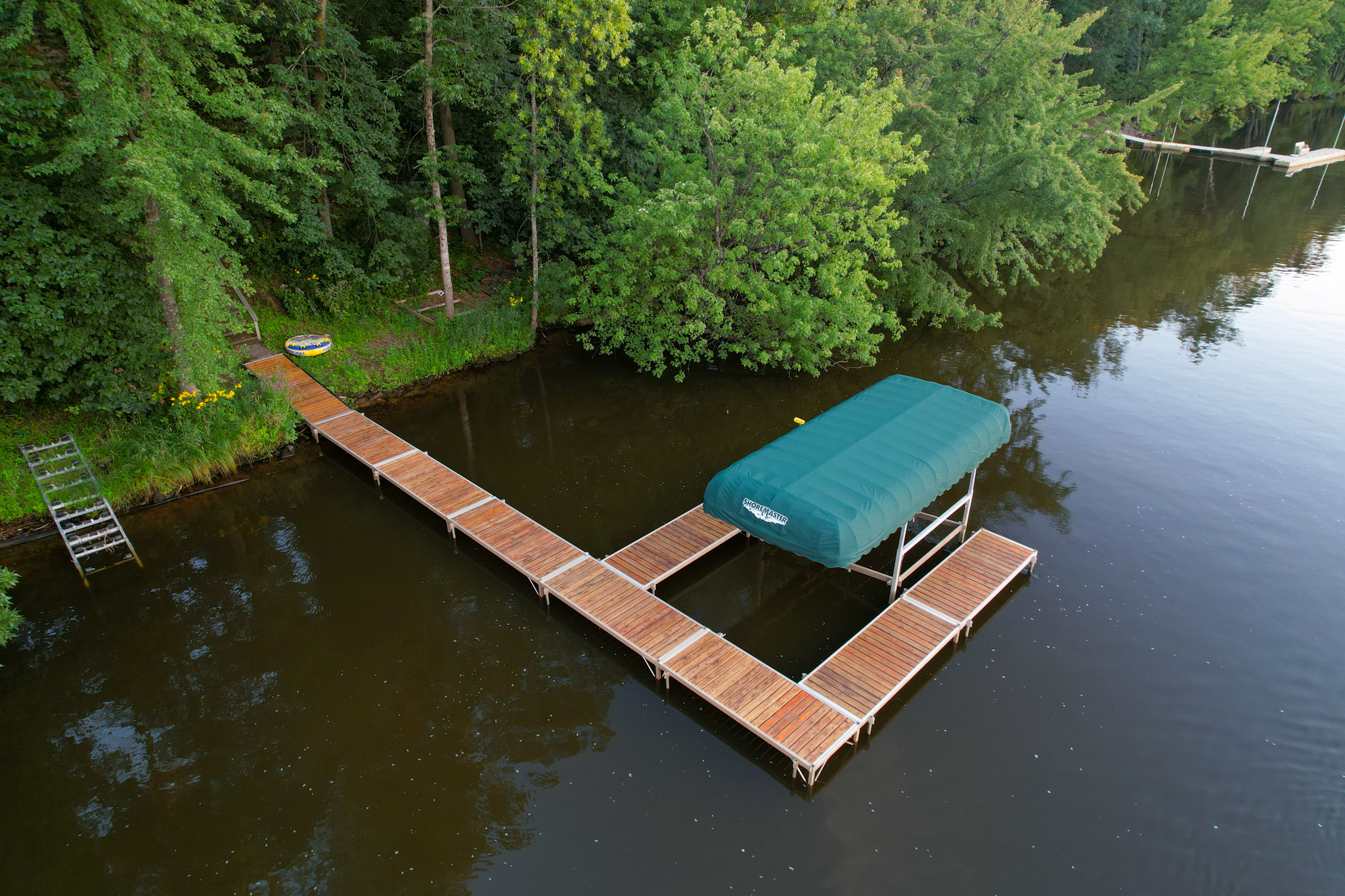Why Floating Docks Are the Perfect Remedy for Your Waterfront Requirements
Floating docks present a compelling solution for beachfront needs, specifically due to their flexibility to fluctuating water degrees and their robust, modular style. As we check out the diverse benefits and applications of floating docks, it ends up being evident why they stand out in the world of waterfront framework-- especially when thinking about the long-term advantages they offer for different stakeholders.
Trick Advantages of Floating Docks
The convenience of floating docks offers various advantages for waterfront applications, making them an increasingly popular option amongst marina drivers and building developers. One of the key benefits is their adaptability to rising and fall water levels, which permits them to remain practical in various atmospheres, including lakes, rivers, and coastal areas. Unlike standard fixed docks, floating docks can fall and increase with the tides and seasonal modifications, making certain consistent availability.
Additionally, floating docks are normally easier and less costly to mount and keep. Their modular style assists in quick assembly, reducing labor costs and building and construction time. Additionally, the products made use of in floating dock building are frequently immune to corrosion, making certain longevity with minimal maintenance.
Safety is one more crucial benefit; the resilient nature of these docks lessens the danger of mishaps throughout boarding and disembarking, making them particularly appealing for family-oriented facilities. Last but not least, their ecological impact is reduced than that of set frameworks, as they do not interfere with marine ecosystems. Jointly, these benefits position floating docks as a remarkable option for a variety of beachfront requirements, straightening with both operational effectiveness and environmental factors to consider.
Ideal Applications for Different Tasks
Flexibility is a characteristic of floating docks, making them suitable for a large range of activities throughout different waterside setups. These versatile structures can work as optimal systems for recreational tasks such as boating, angling, and swimming. Their resilient nature enables very easy access to watercraft, making it possible for smooth departure and disembarkation, while additionally supplying a stable location for fishermens to cast their lines.
In commercial setups, floating docks facilitate the loading and discharging of items, suiting both tiny and huge vessels. They are particularly valuable in areas with rising and falling water degrees, guaranteeing that procedures remain nonstop. Additionally, floating docks can be made use of for waterside dining and entertainment, providing a one-of-a-kind and breathtaking experience for clients.
Environmental applications are also significant; floating docks can operate as observation systems for wildlife enjoying or as docking stations for research study vessels involved in environmental research studies. As marina expansions become a lot more common, these docks supply a sensible solution for boosting capability without comprehensive land alterations. Inevitably, the convenience of floating docks makes them a favored selection for anybody looking for functional and effective waterside remedies.
Design and Modification Options
Floating docks not only accommodate varied activities yet also provide a variety of layout and customization options that improve their capability and aesthetic appeal. These versatile frameworks can be customized to fit details waterfront needs, whether for household, business, or recreational purposes.
One key aspect of personalization is the option of materials. Choices vary from high-density polyethylene to light weight aluminum, each giving unique benefits in regards to sturdiness and upkeep. Furthermore, the setup of the dock can be adapted to fit different water levels and environmental conditions, ensuring stability and safety.
Layout attributes can consist of incorporated seats, barriers, and illumination, which not only improve usability yet additionally improve the appearance of the dock. Personalized finishes and shades enable owners to match the dock with existing frameworks or individual choices, creating a natural seek the beachfront.
In addition, floating docks can be designed with modular areas, allowing simple expansion or reconfiguration as read this article demands alter. This versatility is particularly useful for growing families or evolving business business. In general, the comprehensive layout and modification choices available make floating docks a very versatile solution for any kind of waterside setting.
Installment and Maintenance Factors To Consider
Typically, successful installment and maintenance of floating docks need careful planning and focus to detail. Prior to starting setup, it is important to evaluate the details website conditions, including water deepness, wave activity, and neighborhood guidelines. This preliminary examination educates the selection of products and design, guaranteeing the dock will certainly endure environmental anxieties.

Upkeep is equally vital to extend the lifespan of the dock. Regular examinations must be conducted to recognize wear and tear, specifically on flotation tools, ports, and decking. Cleansing the dock regularly aids avoid the buildup of algae and particles, which can compromise surface honesty and aesthetics.
Furthermore, seasonal preparations, such as removing devices and securing the dock throughout extreme climate, can avoid damages. By focusing on proper installment and routine upkeep, owners can ensure their floating dock stays a practical and dependable beachfront solution for many years to find.

Environmental Effect and Sustainability
The environmental impact of floating docks is a critical factor to consider for beachfront tasks, as these frameworks engage directly with aquatic ecosystems. floating docks. Unlike typical set docks, floating docks decrease disturbance to the substratum, permitting natural debris motion and decreasing erosion. Their style permits for water flow anchor beneath, promoting healthy and balanced water atmospheres and sustaining regional wild animals
Numerous floating docks are built from lasting materials, such as green composites and recycled plastics, which minimize the carbon footprint connected with production. Contemporary styles include features that enhance ecological sustainability, such as permeable surface areas that facilitate water filtering and decrease pollution.
Floating docks likewise give a suitable system for habitat restoration by supporting the growth of aquatic greenery and offering shelter for fish and other marine organisms. By including features like fish habitats and immersed growings, floating docks can improve biodiversity in the area.
On top of that, these structures can be designed to accommodate solar panels, giving renewable resource choices that additionally minimize their environmental impact (dock company). On the whole, floating docks stand for a lasting service that balances human use beachfronts with the conservation of important communities
Conclusion
To conclude, floating docks existing a extremely adaptable and sustainable solution for varied waterside requirements. Their modular design, paired with making use of resilient, corrosion-resistant materials, makes sure long life and convenience of maintenance. The flexibility of floating docks fits numerous applications, varying from leisure tasks to commercial procedures while lessening environmental effect. Ultimately, the personalized features and ability for growth further strengthen floating docks as an optimal option for any waterside task.
Floating docks present a compelling option for beachfront needs, especially due to their versatility to rising and fall water levels and their robust, modular style. Unlike typical fixed docks, floating docks can drop and climb with the trends and seasonal adjustments, guaranteeing constant access.
Collectively, these advantages position floating important site docks as an exceptional service for a variety of waterside requirements, lining up with both functional performance and eco-friendly factors to consider.
On the whole, the considerable design and personalization choices readily available make floating docks an extremely adaptable service for any type of waterside setting.
Unlike conventional set docks, floating docks reduce interruption to the substrate, allowing for natural debris activity and reducing erosion.